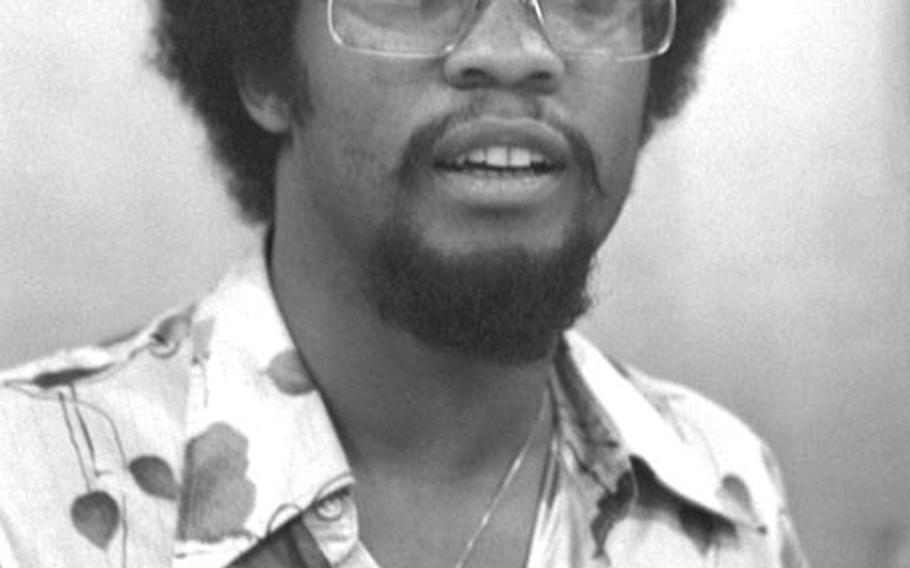
Herbie Hancock in Tokyo in July, 1974. (Hideyuki Mihashi / Stars and Stripes)
TOKYO — Herbie Hancock, a 34-year-old veteran jazz writer-pianist who is on tour in Japan, says that until recently he hasn’t really played music that came from his soul.
"Nichiren-Shoshu Buddhism," is the reason, he said. "If it weren’t for my practice in that religion I would not have changed my music at all, at least not at this point."
He said that one day as he was chanting an idea came to him.
"This idea was about myself and my own viewpoint of what is valuable in music. The idea was that I was a musical snob. But I said to myself, ’I’ve recorded so many different types of music, this is impossible, how could I be snobbish?’"
But it was true, he said, "I’m just beginning to learn the sound of what is funky and what isn’t."
Hancock, a familiar name in jazz circles, was born in Chicago and attended Grinnell (Ia.) College from 1956 to 1960. He has played with the Chicago Symphony Orchestra, Coleman Hawkins, Donald Byrd and was a member of the Miles Davis Quintet until 1968.
He said his basic philosophy in music is "to make people happy. The happiness could come in the form of enjoyment of just hearing the music or, for example, if the music can help lighten the burden of a person’s life. By making him relax, he might be able to deal a little better with his life for one more day."
"Black funk," an accurate description of ’now’ music, Hancock says, has touched off an international craze. "I think the label is pretty accurate. You see, the word funk is a slang term, and the word funky has many meanings on different levels — many things can be funky."
"In other words I think at this point I can hear some music and tell you if it’s funky, but I can’t tell you why."
He said he feels that it is another language that makes you want to move. He continued, "The kind of funk most people relate to is like James Brown, Sly Stone, The Ohio Players, Otis Redding, and that is funk in a popular sense. Meaning almost anything with a kind of a blues style but with a popular beat."
Asked if he thought whites could play the funk beat as well as blacks, he said, "If I didn’t think so I wouldn’t have any white people in my group," in which the drummer, Jefferey Clark, is white.
Headhunters, one of the hottest-selling albums in 1974 on the jazz album charts, is a peculiar album in the sense that the name, the musicians and the music all refer back to the African continent.
Hancock said his percussionist, Bill Summers, was mostly responsible for the distinctive African beat that manifests itself in Headhunters.
Watermelon Man, which was written by Hancock and gained him notoriety in 1962, was re-released on the Headhunters album. Summers said, "In Watermelon you notice one part when you hear sounds of a whistle. They are little one-note whistles called Hin-di-hu. The other notes you hear are formed by the voice.
"The pygmies (of Africa) do this type of music. They are what you call masters of Polyfa-music, layers of voices. They yodel and several people might do it in conjunction which creates layers of sound." He said the pygmy women perform this certain kind of music when their men are returning from hunting. "That’s where I got the idea for the whistle in the remake of the cut."